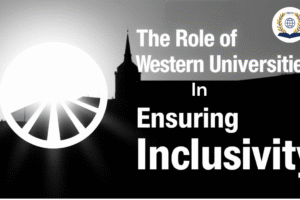
Rethinking International Education in 2025: Adaptation, Innovation, and Opportunity
The Changing Landscape of Global Education
In 2025, international education is evolving faster than ever. Political shifts, economic challenges, and digital advancements are reshaping how students, institutions, and governments approach learning. As traditional education models face disruption, the need for adaptability and innovation has never been greater.
Geopolitics and Economics: Shaping the Future of Study Abroad
Historically dominant study destinations like the U.S., U.K., Canada, and Australia are seeing increased competition due to rising tuition costs and stricter immigration policies. In response, non-Anglophone countries such as Germany, France, and Finland are emerging as top choices for international students.
- Germany: Tuition-free public universities and strong post-graduation work opportunities.
- France: Progressive visa policies and globally recognized institutions.
- Finland: A leader in digital learning and innovative teaching methodologies.
These shifts highlight the growing demand for affordable, high-quality education options that prioritize accessibility and inclusivity.
The Digital Transformation of Education
The integration of AI, Virtual Reality (VR), and Augmented Reality (AR) is revolutionizing learning experiences:
- AI-Powered Personalized Learning: Adaptive learning platforms provide tailored educational content, helping students progress at their own pace.
- VR & AR in Education: Medical students can perform virtual dissections, while history students can explore ancient civilizations in immersive environments.
- Challenges: Despite these advancements, issues such as data privacy concerns and unequal access to technology remain pressing challenges.
Breaking Financial Barriers: Affordable Education Models
Rising tuition and living costs are driving students in emerging markets toward more affordable options. Institutions and governments are responding with:
- Hybrid Learning Models: Combining in-person and online courses reduces costs while maintaining academic rigor.
- Expanded Scholarship Programs: Countries like India and Brazil are increasing financial aid opportunities for international students.
- Flexible Payment Plans: Many universities now offer installment-based tuition payments, making higher education more financially feasible.
Sustainability and Mental Health: Essential Pillars of Education
Educational institutions are embracing sustainability and mental health initiatives:
- Green Campus Initiatives: Universities are investing in renewable energy, sustainable architecture, and climate-focused research.
- Student Wellness Programs: Expanding counseling services and peer support networks to address growing mental health concerns among students.
Global Mobility and Career Opportunities
With students seeking flexible, career-oriented education, new trends are emerging:
- Short-Term Exchange Programs: More affordable than traditional study abroad options while still providing global exposure.
- Virtual Internships: Allow students to gain international work experience without relocating.
- Post-Study Work Policies: Countries like Canada and Australia are easing visa restrictions, enabling students to gain employment post-graduation.
The Road Ahead: Adapting to a New Era in Education
As global education shifts, success will depend on how institutions, students, and policymakers respond. The future of international education lies in:
- Affordability and accessibility: Expanding opportunities for students worldwide.
- Technology-driven learning: Integrating AI, VR, and AR to enhance education.
- Sustainable and student-centric policies: Addressing mental health and environmental responsibility.
By embracing innovation and inclusivity, the education sector can create a system that prepares students for a rapidly evolving global economy.
Key Takeaways
- New Study Destinations: Germany, France, and Finland are attracting students due to affordability and progressive policies.
- Digital Learning Revolution: AI, VR, and AR are transforming education, but accessibility remains a challenge.
- Financial Accessibility: Hybrid models and scholarships are making education more affordable.
- Sustainability & Mental Health: Universities are prioritizing eco-friendly practices and student well-being.
- Career-Focused Education: Work-study opportunities and post-graduation employment policies are shaping global mobility trends.
Ready for the future of education? Explore new possibilities and redefine your learning journey.
Tag:Access to quality education, affordable education, Crise de l'éducation mondiale, digital transformation of education, eastern europe, educate africa, educate asia, educate europe, educate the world, education, Education and economic growth, global education, Inégalités éducatives, learning without borders, online college, online learning, online university in the US, pillars of education, southeast asia, study abroad, study from anywhere, west africa



